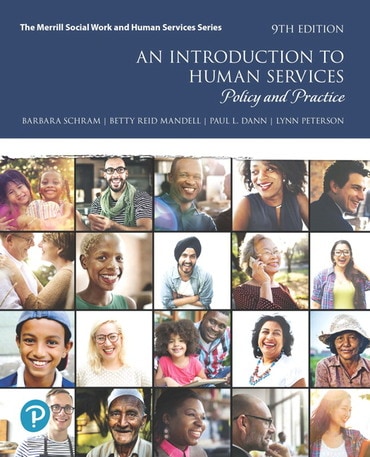Switch content of the page by the Role togglethe content would be changed according to the role
Introduction to Human Services, An: Policy and Practice, 9th edition
Published by Pearson (July 16, 2019) © 2020
- Barbara R. Schram
- Betty Reid Mandell
- Paul Dann
- Lynn Peterson
eTextbook
per month
$111.99
MyLab
from$79.99
Need help? Get in touch

Digital Learning NOW
Extend your professional development and meet your students where they are with free weekly Digital Learning NOW webinars. Attend live, watch on-demand, or listen at your leisure to expand your teaching strategies. Earn digital professional development badges for attending a live session.

